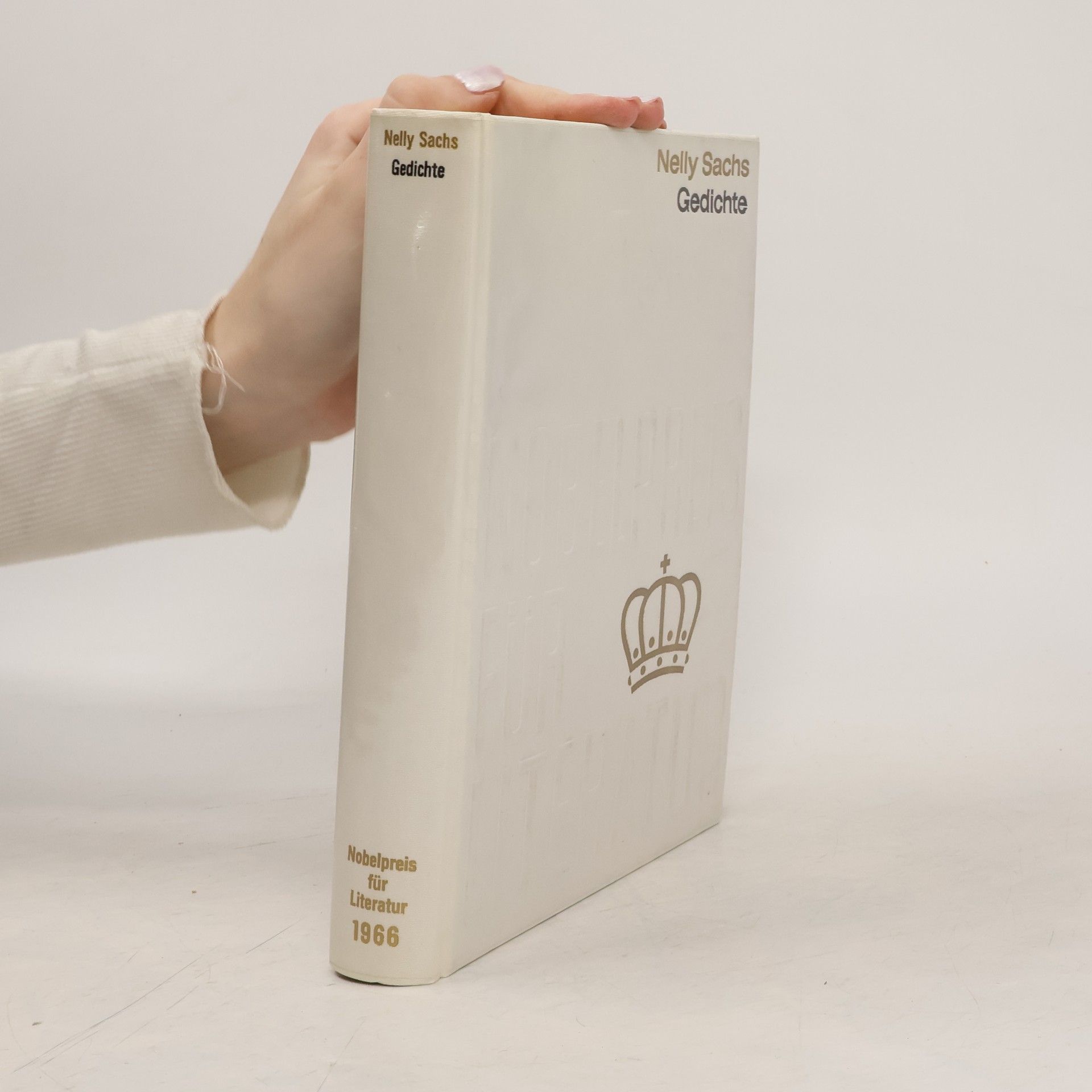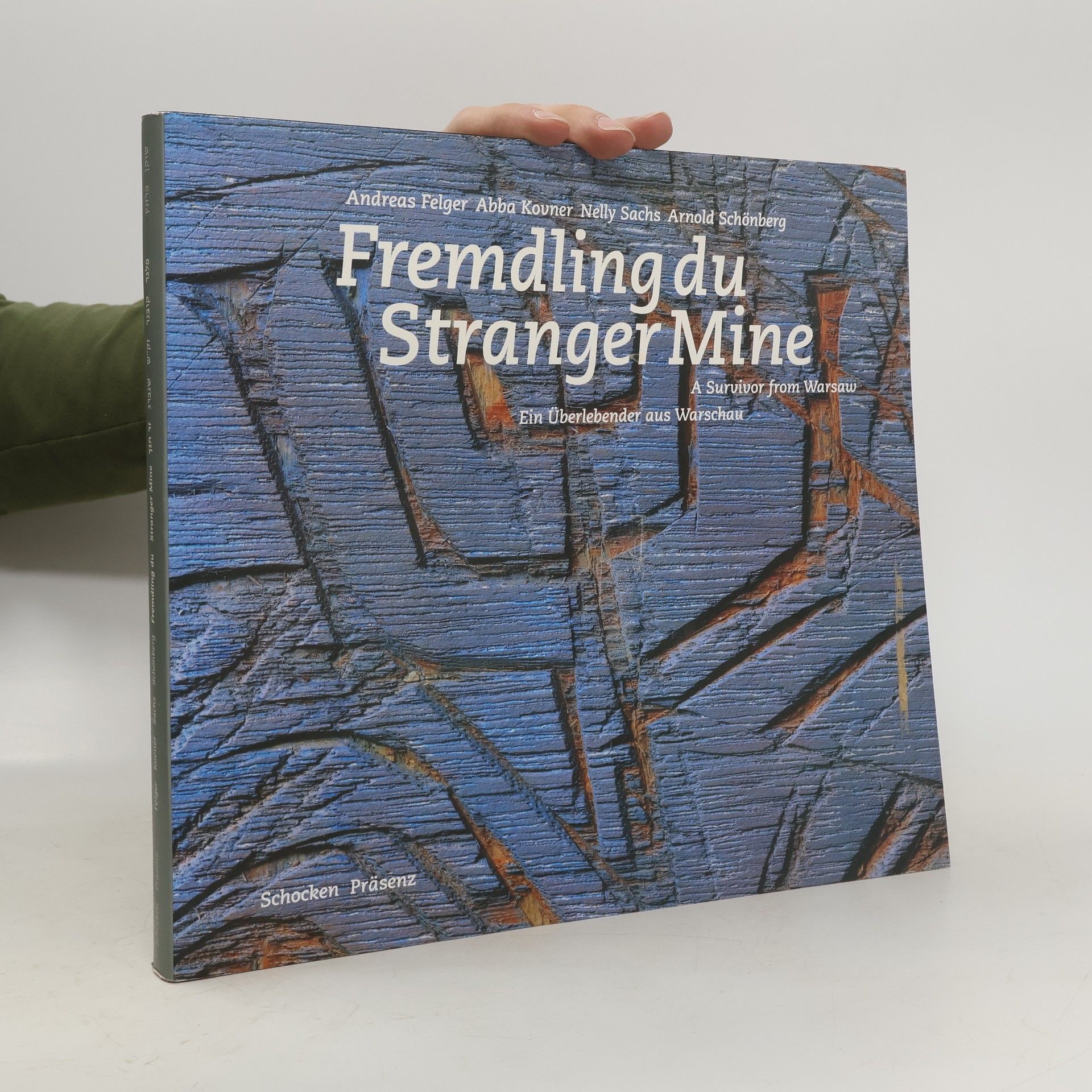Europe - 1036-1037: Henri Heine
- 348pages
- 13 heures de lecture
Cette auteure est célébrée pour son écriture lyrique et dramatique exceptionnelle, qui interprète le destin d'Israël avec une force touchante. Ses œuvres plongent dans les profondeurs de l'expérience humaine, offrant une perspective unique sur les parcours collectifs et individuels. Son style se caractérise par sa beauté poétique et sa résonance émotionnelle, offrant aux lecteurs une expérience littéraire inoubliable. À travers son écriture, elle explore les complexités de l'identité et du sens dans le contexte d'événements nationaux et historiques.






The central collection by the poet, dramatist, and Nobel laureate Nelly Sachs, newly translated by Joshua Weiner (with Linda B. Parshall). So far out, in the open, cushioned in sleep. In flight from the land with love's heavy luggage. A butterfly-zone of dreams like an open parasol held up against the truth. Flight and Metamorphosis marks the culmination of Nelly Sachs's development as a poet. Sachs, who was awarded the Nobel Prize in Literature in 1966, speaks from her own condition as a refugee from Nazi Germany - her loneliness while living in a small Stockholm flat with her elderly mother; her exile, her alienation, her feelings of romantic bereavement; and her search for the divine. Forced onto a journey of endless change, Sachs created her own path forward. From these sublime poems, she emerges as a visionary, one who harnesses language's essential power to create and transform our world. Joshua Weiner's translations (with Linda B. Parshall) are the first in more than half a century to elucidate Sachs's enduring poetic power and relevance.
This Collected Poems revives the poetry of Nelly Sachs who, despite winning the Nobel Prize for literature, has largely been forgotten in the English- speaking world.
Known as a poet who spoke of the history and suffering of the Jewish people, Nelly Sachs was, at the time she was awarded the Nobel Prize for Literature in 1966, highly regarded in her native Germany, frequently being described as a poet of reconciliation and healing, although whether she was is open to debate.
1891 wurde Nelly Sachs in Berlin geboren, sie starb 1970 in Stockholm. 1966 wurde ihr der Nobelpreis verliehen. »Unter Schmerzen zu altern«, schrieb Olof Lagercrantz in seinem Nachruf, »und zu zerschellen am Übermaß an Leid, wird eine Erfahrung für immer mehr Menschen. Nelly Sachs gehört zu den Dichtern, die wir in der Zukunft am allermeisten brauchen.«Dieser Wahrheit eingedenk, hat Hilde Domin eine Auswahl aus dem lyrischen Gesamtwerk der Nelly Sachs getroffen. Von der Kraft ihres Gedichts sprach sie vor einem Jahrzehnt schon: »Deine Dichtung erhält das Unheil lebendig … Und zugleich erlöst Du von dem Unheil. Wir die Dichter von jeher und für die Zeiten den Schrecken und zugleich die Katharsis des Schreckens mit sich brachten.«
Dílo básnířky Nelly Sachsové, jíž byla v roce 1966 udělena Nobelova cena za literaturu, je u nás bohužel dodnes málo známé. Dosud byly přeloženy jen jednotlivé básně, které vyšly časopisecky. Náš výbor Zatmění hvězd se proto snaží postihnout celý její literární vývoj, dát čtenáři průřez její celoživotní tvorbou od prvních básnických sbírek, kdy psala především tradiční veršovou formou, až po zralé období šedesátých let, v němž její básně vykrystalizovaly v hutný moderní tvar. Ač Nelly Sachsová i s rodiči unikla nacistickému běsnění v Německu exilem, válečné hrůzy - holocaust - ji i její tvorbu poznamenaly na celý život. Její křehká poezie je proniklá prožitými traumaty, bolestí nad ztrátou blízkých a - jako u mnoha jiných - pocitem viny, že právě ona přežila, ale i mystickým okouzlením pod vlivem chasidských legend, z nichž čerpala životní moudrost. Nelly Sachsová se naučila mistrnně vyjadřovat utrpení slovy, a s každou další sbírkou se její básnický jazyk obohacuje, plyne téměř nevyčerpatelným proudem obrazů a metafor. Námětově často čerpá z bible a z hrůzné válečné skutečnosti.
Sechs moderne Theaterstücke
Nelly Sachs' Werk ist eine 'Fahrt ins Staublose', die bei uns selbst beginnt. Es thematisiert die Konzentrationslager und die Grabschriften der Opfer, die 'in die Luft geschrieben' sind. Henkern und Mitwissern wird weder verziehen noch gedroht.
Nelly Sachs' Mysterienspiel vom Leiden Israels Eli ist ein Gleichnis über die Unschuld als Opfer in einer dunklen Welt. Nach ihrer Flucht aus Deutschland setzt die Dichterin den Opfern des Terrors ein einzigartiges Denkmal. Der Band enthält auch die lyrischen Werke In den Wohnungen des Todes und Sternverdunkelung, die an die Leiden der Verschollenen erinnern.